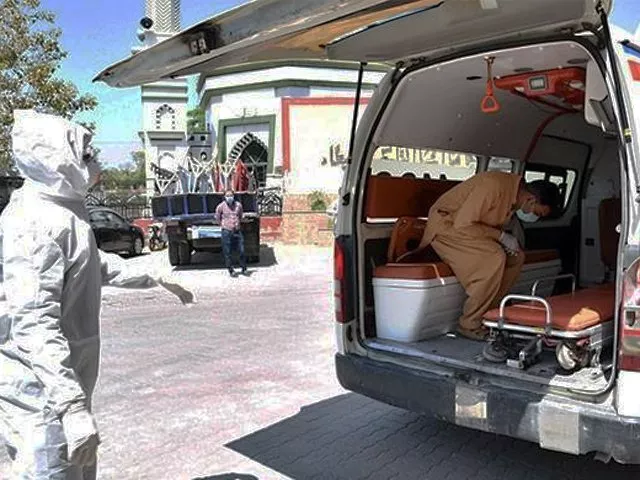Pak, Afghan youth urged to unite to beat Covid-19
Misinformation as lethal as lack of information amid pandemic, say panellists
With the novel coronavirus (Covid-19) pandemic engulfing the entire world, the people and governments of neighbouring countries Pakistan and Afghanistan should forge cooperation to fight the viral outbreak.This was stated by participants during an online discussion on the “Impact of Covid-19 on Pakistan and Afghanistan and the Role of Youth”. The Afghan Studies Centre (ACS) of the Centre for Research and Security Studies (CRSS) went virtual with its first-ever online dialogue on Thursday with over 20 participants from different parts of Pakistan, Afghanistan and the UK.
Youth from both the sides were of the view that people of the two countries have to look after each other as there is no longer a ‘me’ and a ‘you’; there is only ‘us’.
Youngsters need to be determined and committed, they said, adding that they can defeat this virus by banding together and taking it seriously.
Hizbullah Baryal from Afghanistan stated that modern solutions are required for improving education in Afghanistan - a sector deeply impacted by this global crisis.
“Perhaps it is time to use this as an opportunity to revamp our educational systems,” he said.
Ahsan Hamid Durrani from Pakistan said, “as we implement online solutions, we need to be mindful that the availability of the internet is not uniform for all students in both countries.”
The education system needs to come up with alternative ideas as well instead of just sticking to the current virtual education prototype, he said.
Danyal Hayat, from CECOS University Peshawar, feared that at least half a million textile and garment industry workers had lost their jobs in Punjab already due to the extended lockdown. Further, 18.5 million people are at risk of losing their jobs in different sectors in the coming days, he added.
The lack of written labour contracts, inadequate legal protections, and poor enforcement of labour laws and regulations could exacerbate problems during this crisis, he warned.
Youth General Assembly (YGA) Pakistan President Aleena Shah and Safia Ibrahimkhel from Afghanistan suggested that the biggest problem right now was misinformation and that the dissemination of accurate information was crucial.
Misinformation has as much of a negative impact as lack of information while the generation of fake news, fake media and messages is deeply detrimental. People should try to stop the spread of misinformation in their capacity, they argued.
Youth must critically analyse the material they get from print, electronic and social media before passing it on.
Rafia Jalil and Sundus Khan were concerned about the rise of domestic violence and anxiety due to the lockdown, stressing that this must be addressed through proper online counselling.
The issue of depression resulting from this extended isolation must be addressed as well, the stressed, lamenting that the issue is not even talked about in our region.
Maham Akhtar, who joined from Manchester, said that people there are more concerned with their social life – or the lack thereof. She said that they have no idea about the pain the daily wage workers face in developing countries.
In general, Akhtar said that western countries are suffering from a privilege problem instead of real problems such as those in developing or underdeveloped countries.
Participants suggested that the youth must carry out philanthropy on an individual level and that they should start doing whatever they can on their own, without being prompted to do something.
Simple steps, such as helping out immediate neighbours, was sufficient and that anything that can help, will help.
The research community has the biggest chance to grow in the current situation, so young researchers can research their respective domains regarding the impact of Covid-19 pandemic.
Published in The Express Tribune, April 10th, 2020.


COMMENTS
Comments are moderated and generally will be posted if they are on-topic and not abusive.
For more information, please see our Comments FAQ